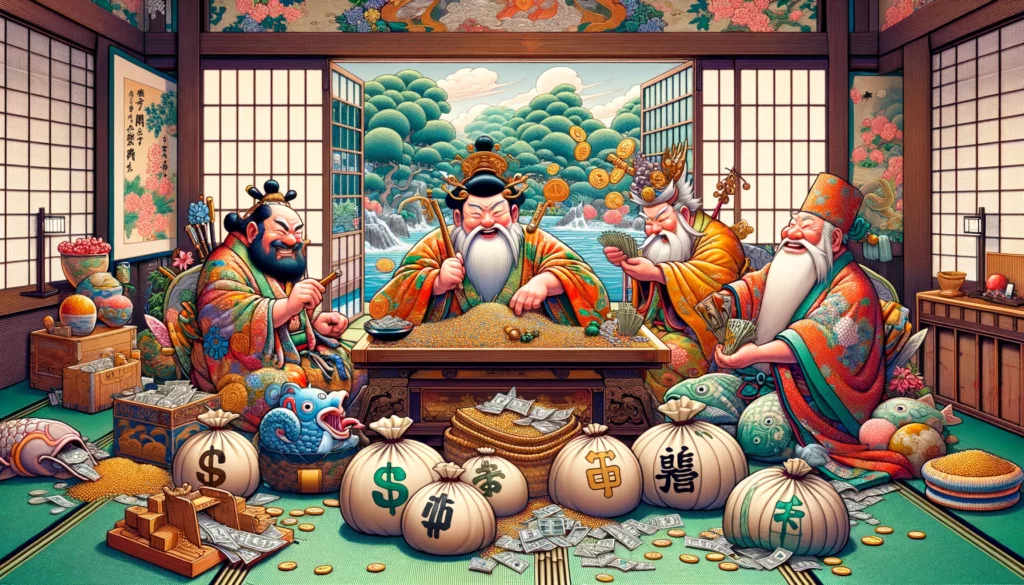

There is an elephant in the room…
There is an elephant in the martial arts room (maybe more than one) and this pachyderm is called money.
Good or bad is an accepted truth that we can’t live without money. There may be differences of opinion in this regard, such as who identifies money as the origin of all evil and who, on the other hand, idolizes it by making it a reason for living. However we place ourselves in this broad spectrum, the substance does not change: without money, we cannot live. Yet when we introduce this topic into our world (and others bordering ours, ask yoga teachers for example) it seems that money loses all its importance and becomes just an embarrassing topic at best. Like when we refer to the “weird” uncle in family gatherings and quickly change the subject.
Now, let’s clear the field immediately from a misunderstanding: it is extremely unlikely to become a millionaire by teaching and practicing martial arts and I am not talking about the top athletes who fight in the MMA circuits (and even there it is not that they are all Conor Mc Gregor, just to name one of the most famous). We, normal practitioners and teachers, do not do it to enrich ourselves, but out of passion. And here, cleared of a misunderstanding, others forcefully enter, bearers of dire consequences.
The first is that, since we are consumed by the sacred fire of martial arts, we should teach for free or almost. After all, ours is more a mission than a job, so what do we want, even to be paid? If they did this to anyone else, I mean a plumber, a lawyer, a doctor, or an employee, they would hear back with a big laugh. And if these people, who presumably work, were asked to work for free, they would rightly refuse, unless they are forced to do so.
Why does this happen? Because basically the job of a martial arts teacher is not considered a real job. At best it is a kind of “mission”, at worst a hobby. Too bad that the professional martial arts teacher has all the needs of all other professionals, indeed perhaps a few more. The serious teacher has the duty to continually update himself, comparing himself with other teachers, especially of a higher level. And all these costs. Because seminars, trips, and classes have a price.
“Before the pandemic I went to Japan two or three times a year to update myself, attend seminars and meet teachers from other schools that I would never have met otherwise, certainly not to go on vacation. Now that the situation is normalizing I hope to start again, but to do this you need a lot of money. ” Andrea Re Sensei
Not to mention the other costs. Anyone who owns a dojo knows how much rent, bills, insurance, taxes, and equipment cost. Even those who teach in a center where they share space with others have costs that are not always sustainable. Uniforms, bokken and iaito, and katanas often have a considerable cost. Not to mention the most important thing, which is the expertise and experience it takes to teach. Yet all this is not considered.


To this we must add the attitude of some sensei who consider it “immoral” to ask for a fee, whatever it is, to teach their arts and condemn without appeal the colleagues who “insist” to be paid. In support of their idea they bring for example the model lives of masters of the past who did other jobs and taught only for passion or, worse still, they refer to the false belief about samurai who disgusted the filthy profit, forgetting that their lords paid them for their services. (I’ll come back to samurai in other posts). Obviously, if they want to teach for free, they can do it without any problems, as long as they do not assume the right to judge those who do not, accusing them of greed and feeding the nefarious world of McDojos.
Last but not least, there is the category of teachers who are ashamed to ask to be paid or who do not know what their market value is. Here too we must to be clear:
“More recently, research institute IBISWorld conductd an examination that determined that the traditional martial arts industry […]generated about $ 4.0 billion in global revenue in 2018, with an anualized growth rate of 4,2%. That’s pretty impressive for what many consider a niche undertaking.”1
And the trend is continuing after the pandemic too. So yes, we are part of an industry, whether we like it or not. The fact is that many of us do not have adequate financial education precisely because we are used to considering teaching as a “mission” and not as a job. But now we know it. This is an essential point that we must always keep in mind, in order to be more and more true professionals and to change both our attitude towards money and how we are perceived from the outside, perhaps by asking for help and advice from industry experts. The border between the McDojo and us can be very thin but it can be maintained by clarifying, practicing, and always keeping in mind the values that distinguish us. But are we sure we really know what these values are?
- “Martial Arts and Your Life. The Story of Us. What We Do and Why” Lawrence Kane, Kris Wilder (2022)
